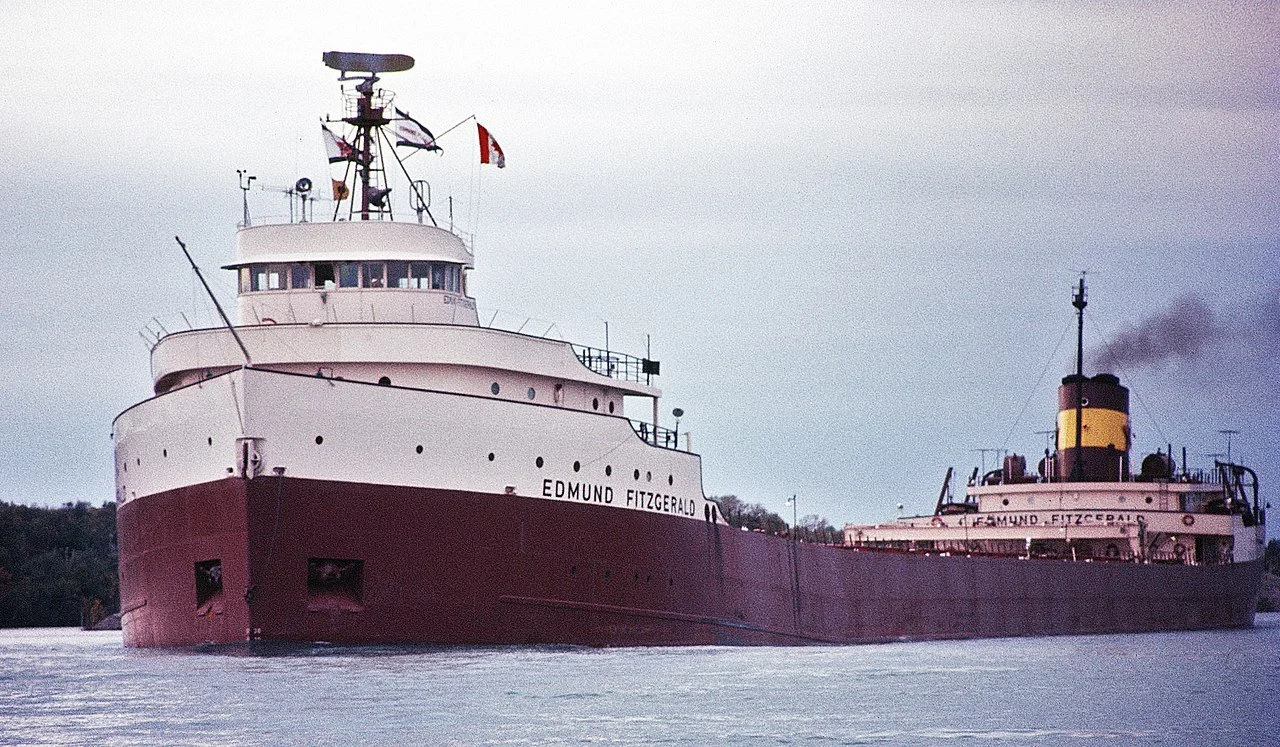Remembering the Edmund Fitzgerald
November 10th, 1975, an ore freighter succumbs to the harsh autumnal weather of Lake Superior, taking with it 29 men.
By Greenmars, CC BY-SA 3.0, https://commons.wikimedia.org/w/index.php?curid=106988525
We are 50 years since the tragic loss of the Edmund Fitzgerald. I won’t pretend to be a historian, and cannot hold a candle to the story telling of the likes of Gordon Lightfoot. I can however, point you towards some interesting media about the buildup to and harrowing moments of the loss of that large ship, and the loss of the working men aboard. It is a surprising and fascinating story of fates tempted, and a “perfect storm” of circumstance that ended in tragedy.
“The Lake, it is said
Never gives up her dead
When the gales of November come early”
You’ve likely heard Gordon Lightfoot’s ballad, The Wreck of the Edmund Fitzgerald, it is worth a listen or a relisten. It is wonderful storytelling that came in contemporary times, as Gordon felt that the short newspaper story that reported on the loss of the 29 men did not do their souls justice.
Further, the Duluth News Tribune has produced a fantastic five-part podcast series titled Edmund Fitzgerald: 50 Years Below. You can find the episodes on youtube, or wherever you get your podcasts.
There are some remembrance programs tomorrow, November 10th, 2025, such as those at Split Rock Lighthouse, or the Great Lakes Shipwreck Museum at Whitefish Point, near where the wreck occurred. (Livestream Here). Both of these sites are worth visiting for more than just the Edmund Fitz.
Now, if you’ve heard the story and all of the build up to the wreck, and you are a systems thinker like me, you may consider, “how’d this happen?” or “how could it have been prevented?”. These are what make me ever more curious about this tragedy, why there is so much to learn by revisiting accidents, heck, why the National Transportation Safety Board (NTSB) reviews wrecks like that of the Fitzgerald.
Maybe it was incredibly unlucky circumstances, maybe it was Normalization of Deviance, slowly normalization substandard practices which are almost always fine, until they aren’t. It is hard to say, especially 50 years after, when the monday morning quarterbacking gets hazier and hazier, but perhaps considering the contributing factors can help to improve your own safety systems, and encourage doing things well every time, if when it would almost certainly be fine to let something slide. We can learn from tragedy, such as improvements to weather monitoring and forecasting in the Great Lakes following the Edmund Fitzgerald tragedy. How many lives have been saved by improvements made? Does that work honor the loss of those 29 men?
“Those who cannot remember the past are condemned to repeat it.”
I think that how we respond to tragedy, and how we can move forward to become better is something worth thinking about.


